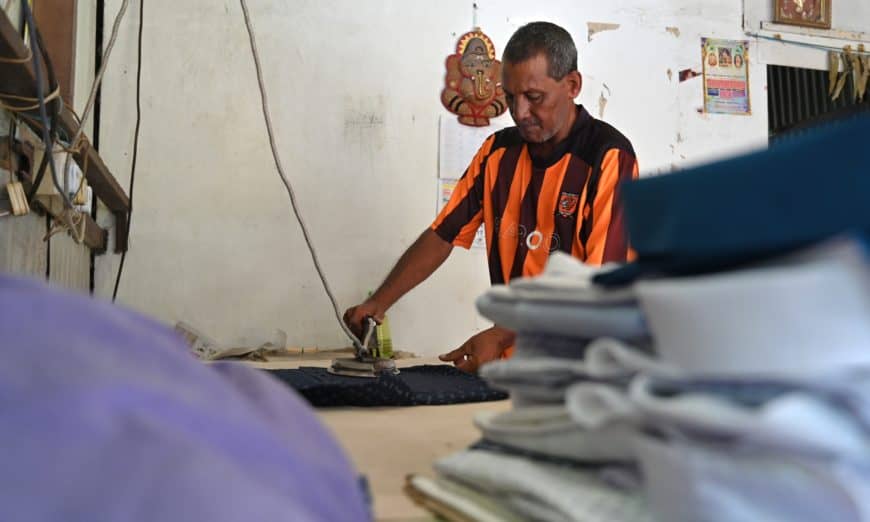THERE’S a saying that goes, ‘No matter where life takes you, don’t forget where you came from’.
This perfectly resembles the commitment, passion and hard work possessed by several individuals running the traditional laundry service in Dhoby Ghaut, a business inherited from their forefathers in the 19th century.
As implied in its name, ‘dhoby’ means washerman in Hindi, while ‘ghaut’ means open space. Hence, Dhoby Ghaut is where age-old traditional Indian laundry services are found.
P. Raman, 59, who runs one of the very last traditional laundry services in the area, said the business is no longer in safe hands considering the future generations that have gotten their lifestyles well-adapted to the current technological advancements of our world.
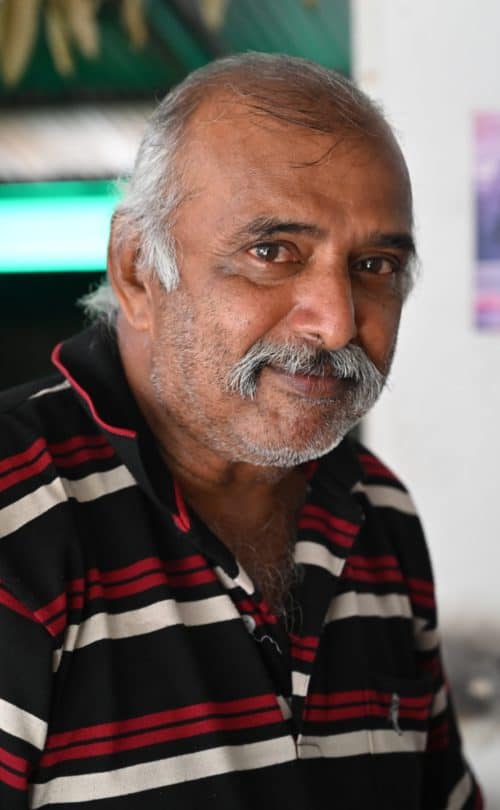
“Times have changed, and with the existence of modern laundry services, the traditional method, if not being forgotten, surely will not be inherited by our future generations.
“In the late 60s, just before I took charge of this business ever since my father fell ill, I was working in a company with little satisfaction to gain from.
“That was when I decided to do this on a full-time basis, and ever since, I have been happily doing it.
“It gives me great pleasure because I truly enjoy doing what I do. It was started by my grandfather decades ago, thus there was very little need to search for clients because there were already long-time clients.
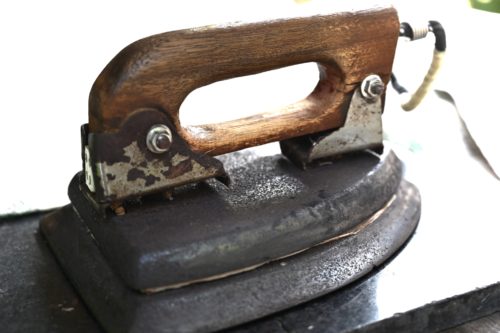
“Since day one until today, I still have the excitement and eagerness to wake up early in the morning to start my work.
“This is not an easy job as it requires a lot of time, hard work, consistency and most importantly, strength. Strength because the irons we use are unlike the modern-day ones, but heavy and classic ones used since the olden days.
“We will continue to do this for as long as we have strength in our bodies because it is a business that will forever stay close to our hearts,” Raman told Buletin Mutiara during an exclusive interview today.
Raman currently works with three other people. They are also his childhood friends as they all went to the same school, which was SJKT Ramakrishna in Jalan Scotland, George Town.
The current space that Raman is operating on is owned by a different owner. Hence, he said he will be looking for a new space in Seberang Jaya as the owner plans to sell the land soon.
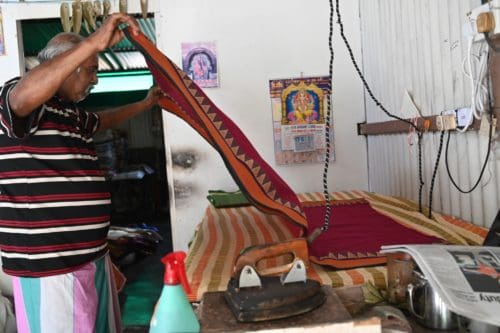
Raman, who is married with three children, currently stays in Farlim.
Asked how many such services are still available in the area, Raman said the number has reduced tremendously to less than five active operators.
“During my father’s days, if I’m not mistaken, there were more than 100 operators here in the early 40s, but now we have fewer than five only.
“The source of water from the river has not been as clean as before, but despite the challenges, my friends and I decided to not give up because we truly enjoy doing this line of work.
“Our children have all grown up, and we don’t wish to trouble them, especially financially. Through this business, we not only make a living but we get to meet a lot of people from different backgrounds.
“Many factors apart from our passion alone have kept us going,” he added.
Although modern-day laundry services have overtaken the traditional method, Raman said the traditional way of washing clothes will always remain unique.
“Here, clothes with heavy stains are boiled in hot water, stirred and then splashed onto concrete pavements to remove tough stains.
“This traditional method of washing is good for white and silky materials, as well as sarees.. It will also reach the dirty parts that modern machines cannot reach,” Raman added.
Meanwhile, V. Yegabrom, 59, one of Raman’s friends, said no one from this generation was willing to inherit this business, including his own children, who are well-settled in their respective jobs.
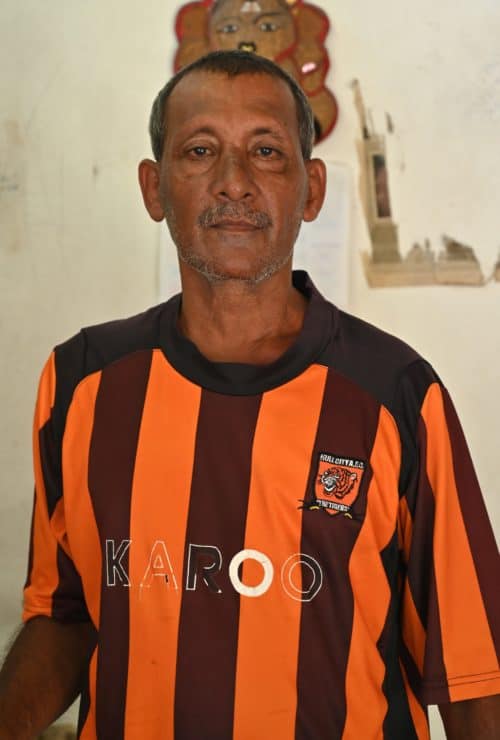
“I have five kids, four are married and one is studying medicine. They told me not to force them to take up this business, so I have no choice but to respect their decision,” he said.
Yegabrom is only in charge of ironing the clothes and not washing or drying as his movements are limited after suffering a major accident some years ago.
Another friend of Raman’s, A. Letchumanan, 59, said he has been working with Raman for over 30 years and the business has been really good until when Covid-19 took the world by surprise, halting businesses of various types, not sparing theirs as well.
“We were affected during the pandemic too, but we still had orders and were able to sustain, nevertheless,” he said.
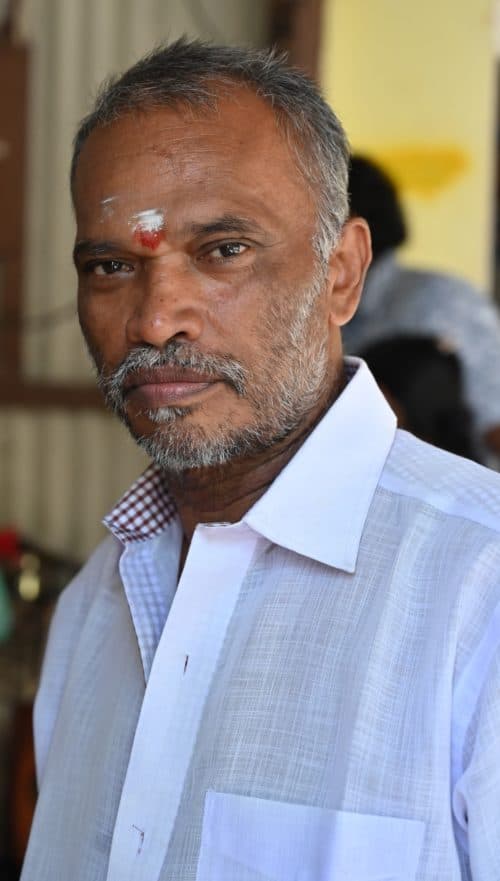
The charges vary for different types of clothes. For instance, Letchumanan said they would usually charge RM1.50 for each cloth ironed, but RM3 for wash, dry and iron.
Meanwhile, for heavy materials like sarees, average rates are from RM10 to RM15 and RM20 to RM25, depending on the types of sarees.
They operate from 8am to 5pm daily, except Sundays.
Story by Kevin Vimal
Pix by Ahmad Adil Muhamad

